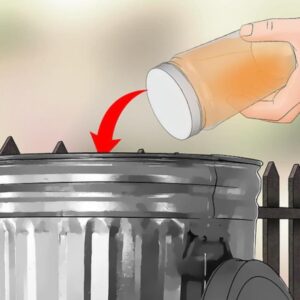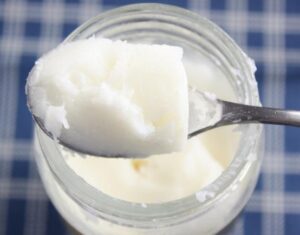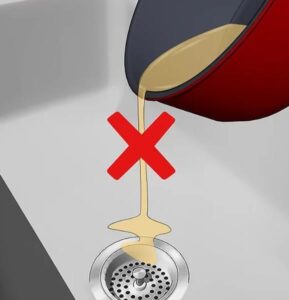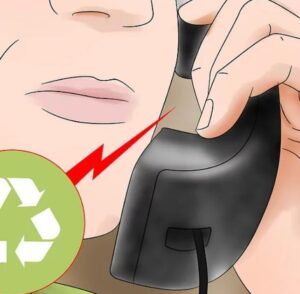Have you used your cooking oil around two or three times, and its smell is strange? Well, it is time to dispose of it. Most people would wonder if throwing away cooking oil is an open possibility. Undoubtedly, it is, but you have to be cautious about how you do it. So how to dispose of cooking oil? Various aspects go into the proper disposal of cooking oil. Here are a few insights into it.
How to dispose of cooking oil?
There is no denying that disposing of cooking oil takes a lot. Thanks to how it can solidify, blocking drains and sinks could be inevitable. Unless you understand how to discard this cooking oil or grease, you will end up disappointed. Here are a few elements to keep in mind.
1. Store and dispose of later

This approach entails packaging the cooking oil and grease accordingly. Ensure that it can barely leak, which is vital for the environment. It would be best to store the oil in unrecyclable containers, including empty milk cartons and take-out boxes. You could also consider putting them in glass jars. After storing it, you can dispose of it alongside other garbage.
2. Reach out to local restaurants
Did you know that most local restaurants have sources for hazardous waste disposal? That means they are likely to allow you to dispose of your cooking oil with them. Some might charge a small fee on their vat. This option gives you the confidence that the disposal will be done correctly. Typically, it is a much more reliable approach compared to disposing of alongside other household garbage.
3. Use local household hazardous waste collectors
Various garbage collection companies have specialized in household hazardous waste(HHW). Relying on such companies will be one of the best decisions you could ever make. These companies provide doorstep services, allowing you to discard multiple types of hazardous waste at once. They will follow the right procedures, ensuring that the environment is not compromised.
4. Opt for the grease disposal system
Here is yet another disposal system you will not want to overlook. This system comes with a plastic container and foil-lined bags that can hold up to two pounds of waste. That means you have to put a bag in the container and pour the used cooking oil into it. Once the bag is full, seal it properly and throw it into the garbage. This method is not only eco-friendly but also relatively straightforward.
5. Add it to your compost
Sometimes, adding your cooking oil to the compost could be the only way out. This method will suffice if the cooking oil extracts from vegetable oil, including sunflower, olives, coconut, and corn.
All these are natural foods, meaning they will be safe in the compost. However, ensure that you do not add animal fat, as it could readily attract bugs and other unwanted animals. Earthworms, critters, and worms love cooking oil and fat. For that reason, minimize the amount of cooking oil you want to dispose of each time.
4. Mix with other items
You cannot overlook the effect of diluting the potency of cooking oil. The best approach would be to use absorbent items, including sawdust, sand, flour, and sand. Cat litters could also come in handy. These materials help soak the oil much faster, assuring you of a less messy situation. Once you mix with these absorbent materials, you can toss it alongside other garbage.
5. Convert it into pesticide

Undoubtedly, cooking oil has proven to be one of the most reliable pesticides. While it attracts some bugs, it could easily deny them the air they need. Its eco-friendliness makes it an ideal choice for your crops. This oil will either kill the bugs or keep the annoying ones away.
How to dispose of expired vegetable oil?
Expired vegetable oil can be a headache if you do not know how to dispose of it. Here are a few things you need to observe when getting rid of this oil.
1. Chill the cooking oil
Usually, it would be best to freeze the cooking oil until it hardens. Preferably, put the oil in an oil container when doing so. As long as it is solid enough, it will be ready for the trash can. Throwing the oil in its solid form helps the garbage collectors separate it from the trash. Nothing could be more integral in the pursuit of eco-friendliness!
2. Do not pour it in the sink

You are likely to be tempted to pour your expired cooking oil down the sink. While it is an easy way out, it could expose you to different issues in the long run. This oil is likely to block your kitchen and sewage pipes if it solidifies. If your pipes are blocked, the cost of hiring a plumber will be yet another burden.
3. Avoid the drains
Expired cooking oil is often smelly and full of dirt. From lard to vegetables, you cannot overlook how nasty this oil can be. If you were to pour it down the drain, you would be sure of unrivaled expenses. The drains will not only block but also be quite smelly. Unless you understand how to clean such messes, you will end up drained.
4. Avoid the toilet
Never pour expired vegetable oil in the toilet, as it is likely to damage your drain line walls. There is also a chance that the pipes will end up clogged in the long run. Besides, water and oil do not mix, meaning you will have scum around the toilet seat.
5. Consider professionals

Various garbage collection professionals are at your disposal, and their approach assures you of unrivaled effectiveness. Usually, these professionals come in handy in the disposing of various hazardous materials, including cooking oil. You can also choose to send the expired oil to your local restaurants, as they understand where and how to get rid of it.
How to recycle frying oil?

Sometimes, recycling can be one of the best decisions to make. Here are a few things to consider in this pursuit.
1. Prepare the oil
Take the time to strain the oil, removing all the lard in it. Ensure that your cooking oil is clean, and store it in an air-tight container. Feel free to refrigerate it for a while. Besides, such will be the right time to warm your frying oil.
2. Decide between liquid and solid
There is no doubt that some people will prefer dealing with solid to liquid waste, and vice versa. For that reason, ensure that you let the oil cool down and solidify. Freezing ensures that the oil is solid enough to be disposed of.
3. Put it in a container
Take the time to decide which container suits your expired oil. Ensure that you label it before you can place the frozen cooking oil in it. If you plan to reuse this oil, you can consider refrigeration. Ensure that your container is full, but avoid putting in animal fat.
4. Get a recycling center
Most recycling centers consider cooking oil as part of household hazardous waste. Disposing of your frozen cooking oil here will save you time and effort. However, some centers can only accept this oil during festive seasons. If this is the case, do not shy away from finding other solutions.
5. Contact the local fire department?
Well, this might come as a surprise, but it is a viable option. Local fire departments are likely to accept cooking oil for recycling. That is because it also helps them run efficiently.
What not to do when disposing of cooking oil?

Disposing of cooking oil is a delicate process, and any small mistake can be costly. Notably, you need to understand where and how not to get rid of this cooking oil. Here are a few things you should always avoid in this pursuit.
1. Do not discard it in the toilet
One of the biggest temptations will always be to dispose of your cooking oil in the toilet. While it might seem an easy way out, it could end up ruining your life forever. Cooking oil does not mix with water, meaning it will float and even form scum on your toilet bowl. As if that is not enough, it is likely to block your drains and damage their walls, exposing you to unwanted expenses.
2. Avoid the drain
Did you know that cooking oil can block your drains? This oil solidifies under low temperatures, meaning it can create extra walls on the drains. With this, the kitchen pipes and drains end up clogged. Besides, there could be lard in the used oil, making it more complicated in the long run.
3. Never pour the oil in the sink
Pouring used cooking oil in the sink is a recipe for disaster. It not only clogs the pipes but also exposes your kitchen to a stench. You are also likely to end up with leaking sewage. However, ensure that you do not wipe your pans with a paper towel. That is because you cannot recycle the paper once you step on it.
4. Do not pour the oil outside
Experts advise against pouring cooking oil outside. That is because the oil will seep through the ground and even find its way to the drains. Eventually, your pipes get clogged, exposing you to repair costs. Besides, leaving oil outside can cause significant issues to various wildlife.
5. Do not put it in the compost pile
If you have large amounts of cooking oil at your disposal, avoid putting it in the compost pile. These oils are likely to attract vermins and bugs, which could pose a great danger to your family. From their smell to their effect on the environment, avoiding them in the compost pile would be the best option.
When to save frying oil for later, and when to dispose of it?
There is barely a one-dimensional solution to this. Mostly, you can store your cooking oil for about three months. However, you are free to use and reuse it until it turns bad.
The oil will remain in top-notch condition only if you seal your container and ensure that it is lightproof. You could also consider refrigerating it, as it adds to its longevity. In that light, you can only save frying oil if it is fresh and not smelly.
Take the time to understand the tell-tale signs of when to dispose of your cooking oil. Once it becomes clouded or smelly, it would be best to discard it. A change in smell, taste, and appearance highlights its damage. Disposing of it at this point is a healthy move.
FAQs
1. Can I throw out used cooking oil?
Disposing of used cooking oil requires all the necessary caution necessary. Usually, it would be best not to throw it outside, which might attract vermins and bugs. It could also be detrimental to the environment and your drains. Instead, package it in unrecyclable containers and dispose of it with other garbage. Ensure that you seal these containers properly.
2. Can I dispose of cooking oil in the garden?
There is no denying that cooking oil can be used as a pesticide. As long as you apply it right, you will have no reason to worry. However, be careful not to discard it inappropriately in the garden. It could expose you to unwanted bugs, vermins, and wildlife. However, if you are to discard it in the garden, ensure that it is in small amounts only. Excess oil can be detrimental to the growth of your plants.
3. Can I pour vegetable oil into the drain?
No. It will be a grave mistake to pour vegetable oil down your drain. That is because this oil can significantly affect the walls of your drains. It will also create layers once it solidifies, clogging your drains in the long run. Instead, package your used oil accordingly and dispose of it using the right procedures.
4. How to handle leftover frying oil?
Various steps go into properly handling leftover frying oil. Take into account the following variables.
4.1. Cool your oil – Allow your cooking oil to cool. Only handle it once it reaches room temperature.
4.2. Strain – Straining the cooking oil helps remove fine particles left behind, including lard. Remove any small particle in the cooking oil and ensure that it is smooth.
4.3. Keep it stored – Please put it in a well-labeled container and refrigerate it. Store it in a cool and dry place. Besides that, ensure that the container is air-tight.
Conclusion
In conclusion, disposing of cooking oil is one enormous task. Unless you understand how to do it, you will barely avoid vermins and bugs in your home. With the insights above, making the right decision will not be a daunting task.
Image Credit:
https://www.wikihow.com/Dispose-of-Cooking-Oil
https://greencitizen.com/how-to-dispose-of-cooking-oil/
